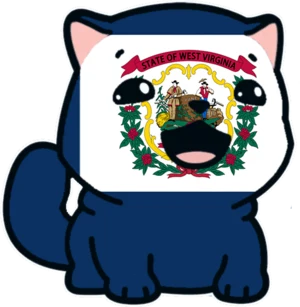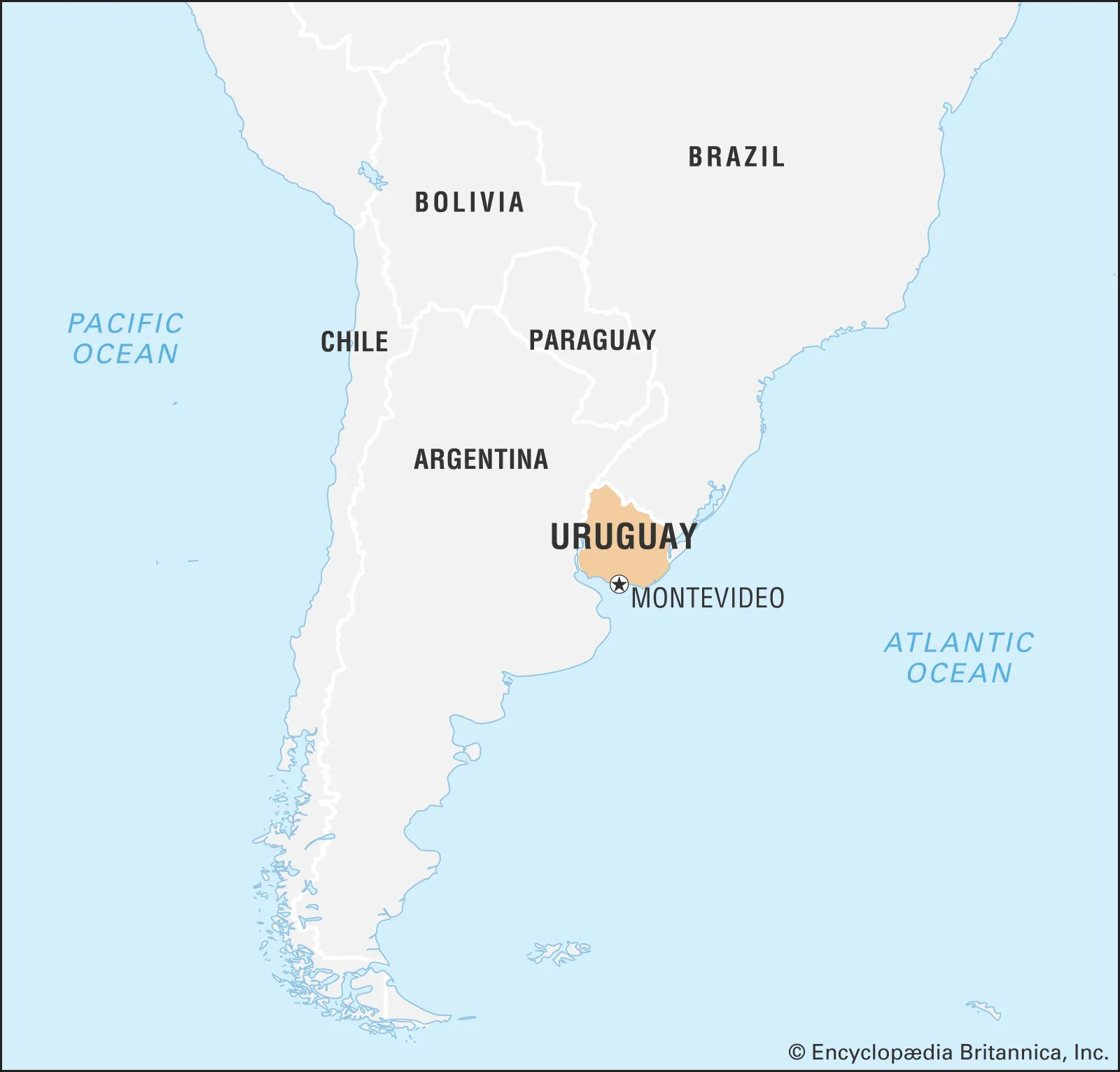- 3
- 7
Chuds why do you hate America? Why do you hate the constitution? What did James Madison ever do to you that you hate his work so much?
The 10th Amendment establishes the Anti-Commandeering Doctrine, this is that the federal government cannot force or order states to expend resources for federal functions. SCOTUS first established it in Prigg v. Pennsylvania when they found the federal government could not force states to enforce the Fugitive Slave Act. The '97 landmark case of Printz v. United States was the most recent case they affirmed the doctrine and solidified its current form.
The federal government cannot force states to spend on enforcing federal laws. Immigration laws suffer a double blow because its also exclusive federal jurisdiction, states are not permitted to regulate immigration.
This is settled law. The bimbo is being r-slurred, and she hates America.
- 64
- 79
BREAKING: Tulsi Gabbard confirmed as Director of National Intelligence. pic.twitter.com/vVP5hjsOY0
— Fox News (@FoxNews) February 12, 2025
- 62
- 111
In its ruling, the ASA acknowledged the model's face "did not appear to be gaunt and her arms, while slim, did not display any protruding bones".
But it said: "Because the pose, camera angle and styling in the ad investigated strongly emphasised the slimness of the model's legs, we considered that the ad gave the impression that the model was unhealthily thin."
Of course it's a foid making this comment
- 10
- 26
AOC says she's NOT pregnant. She just "ate a lot of food at Thanksgiving. It happens." pic.twitter.com/1L2uhwodGJ
— Libby Emmons (@libbyemmons) February 12, 2025
- 6
- 17
You know how back in High School you could send candygrams/roses to your friends and crushes on Valentine's Day? I think it would be cool if you could do that on rDrama. You could buy the person you like flowers or something, and then get a cute Valentine's Day badge 
 Maybe you could even give the option of making these gifts anonymous for the stalkers/secret crushes
Maybe you could even give the option of making these gifts anonymous for the stalkers/secret crushes 
Another idea is you could have a scoreboard to see who gets the most roses.
I know it's probably too late to do it this year since Valentine's day is in a couple of days, but maybe next year? Just an idea.
- 39
- 79
You should get a spine and have it installed. It's wayyy too early to panic, because a lot more of this shit is coming. If you think it's bad now, you've got another thing coming.
I am overjoyed that someone is finally starting to weed out the financial corruption we have been enduring all these years. I don't see why this would make you panicky. We should all be happy we finally have a real leader at the helm.
Worried? I'm ecstatic AF! This is exactly what I voted for!
However, I can see why you're having issues.
1. You and your party has no power. You have been rendered impotent
2. You're weak AF
How to solve this? Get off the Internet. Go do something active, man or woman the frick up!
Then leave.
Yea heaven forbid Americans complain about American things on an American app supported by an American company. [-6]
You should see a therapist. This isn't remotely a bad period of time compared to historical standards
Edit for the downmarseyrs: you need to bear in mind that a lot of people lived through decades where nuclear war seemed like a lot more than a hypothetical possibility.
Everything is finally getting better.
I feel you and totally relate. If you want a friend to mutually lean on for support during this insane time, please feel free to message me. [-25]
Shut upppppppp
It's NOT you. The average person is under-reacting because they don't want it messing up their routine or taking their crumbs.
The government is objectively being dismantled and people should not just be acting like it's BAU.
Eventually this is going to trickle down on all of us and not just the immigrants and government workers.
I didn't care about your guys election choices until your leader started threatening my country here in Canada every other day with erasing it off the face of the Earth.
I'm feeling anxious aswell . [-6]
Another USAID worker chiming in [🤣]
You're the problem.
Get off the internet. The real world is not the one that exists in your mind, and places like reddit only serve to convince you that they are.
Would you rather find joy or justify misery?
If you're honest about that answer, it will reveal everything you need to know about your direction in life.
Yeah shit is really bad. These people telling you that what is going on is good is either gaslamping you or just dumb as frick.
You have to mentally check out some. Being hyper aware won't get much accomplished. You have to take a step back. Grieve whatever loss it is in stride.
Don't let anyone gaslamp you into trying to tell you that removing environmental protections, deleting our data, setting up a literal concentration camp, subverting the constitution, etc are good things. They are not.
It's hard to control panic attacks and I don't know the best way to subvert them. Know you aren't alone. You care about other people and don't let anyone try and take that from you. Let your voice be heard if you can.
The current regime is NOT on the right side of history. Most of them know it too.
This is what I imagine every redditor is like in real life as I read all the seething going on here the last couple months
I am putting on my blinders and taking solace in that the US thought it wise to train me in violence.
I won't go full radical unless someone questions my kid's citizenship.
I do seem to be in a state like I was in the Army, where I am comfortable and ready to respond with deadly force. I've never really experienced that so casually before. [-8]
If this isn't bait, you need to get mental help. Your team didn't win, thats how our government works. Try again in 4 years. But to be this affected by an election isn't a normal reaction
I accepted myself as trans a little over a year ago. Started hrt maybe 6 or more months ago.
I cry almost every other day on the way home from work since the inauguration. I'm terrified, and filled with hopelessness and anger.
Edit: to those who REALLY think I'm overreacting, look at and read the executive orders around trans people. Look at what he's doing to the CDC. Look at the people who lost care already, who can't get their passports back.
If you still don't believe it's bad, kindly frick right off yeah? [-3]
I think some level of concern is okay, but it should not make it impossible for you to function in day to day life. Like others said, I would seek out therapy. You make what you can out of it because life can't stop.
id seek therapy. Im significantly less than happy but calling out of work out of fear is a little extreme
- 3
- 20
JUST IN: Wendy Williams seen crying from an assisted living facility while giving an interview to TMZ, says she has only been outside twice in 30 days.
— Collin Rugg (@CollinRugg) February 12, 2025
Williams was diagnosed with frontotemporal dementia and was moved to an assisted living facility by family.
Williams, 60, is… pic.twitter.com/MxIjlotCm1
- 17
- 25
- 6
- 5
- 3
- 16
We Used to be a Proper Society… pic.twitter.com/GjzmgrG00R
— 𝕰𝖒𝕲 (@Emilio2763) February 12, 2025
- dooky : Apparent clueless redditor inside !
- 190
- 76
- 22
- 36
Please help me feed my family $ANNA AsCzbtFHxokNyoJr4xzoXXPmpGdcHnH275sC7frrpump pic.twitter.com/VKbErEIejs
— Anna Khachiyan (@annakhachiyan) February 12, 2025
- 38
- 38
Right, there's nothing productive to be had in terms of discussion here, and I don't think you guys even care at this point either to try.
Call it whatever stupid buzzword you want - Woke, DEI, PC, SJW, or whatever dumb term people come up with next week. I don't care. The term means, always has meant, and always WILL mean "Not being an butthole to someone because they're different to you."
Don't pretend that the old stories were fine just having black or gay people - Because buttholes complained about that then, just like you are complaining about it now. The reality is, people who are not the same skin colour, sexual orientation, gender, lifestyle, size, physical ability, etc etc, than you, Exist. They always have, and always will.
Culture including people with different characteristics to you IS NOT A SLIGHT. They are not doing it to offend you, or to "gaslamp you" or whatever nonsense the Anti Woke Brigade has come up with this week. These characters are being created so that the real human beings who have those differences, have someone to look at and go "Hey this guy's like me!" That's it. That's the whole thing. It's just about making everybody feel welcome.
If you want to complain about this, I encourage you to send us a modmail. But this thread is locked, and you know darn well why.




- 15
- 42
- 24
- 17
- 2
- 3
Haven't painted lately. Listening to Flaming Lips Embryonic. February sucks. Squids are pretty cool.
- 85
- 142
/r/GuyCry is a place for men to cry, including 40 year old virgins crying about not having s*x. Joe Truax, the meth head Reddit scammer, is in rehab (again) for his meth addiction so he got a bunch of jannies to oversee the sub. Well, he got unironically two FtM  s, one MtF
s, one MtF  , and the rest are cishet females who want to totally just help men and be in their space.
, and the rest are cishet females who want to totally just help men and be in their space.
Recently, the  jannies decided that "tough love" is not good for men crying It resulted in lots of bans as the men (real) thought it was stupid.
jannies decided that "tough love" is not good for men crying It resulted in lots of bans as the men (real) thought it was stupid.
The  jannies have a new rule. The new rule is no suggesting prostitution or being a passport bro. Also, no bitching about Western women.. Too bad 40 year old virgins. You need to just keep trying with b-words who will never have s*x with you.
jannies have a new rule. The new rule is no suggesting prostitution or being a passport bro. Also, no bitching about Western women.. Too bad 40 year old virgins. You need to just keep trying with b-words who will never have s*x with you.
The men (real) are pretty pissed and the  jannies are banning and deleting comments asking why women (real) are invading their space and making rules.
jannies are banning and deleting comments asking why women (real) are invading their space and making rules.
- 36
- 78
Background: The enshittification of Argentina
This could be an effortpost purely on its own but I leave that task to our great friends from the southern hemisphere.
Argentina's July 9, 1989, Independence Day was historical for two opposing reasons. For the first time since 1928, a democratically elected president had been succeeded by another elected one—leaving aside the Peronista reelection in 1952. But this much-longed-for event happened amid feared, raving hyperinflation. (Nothing new ever happens). Stepping down was Raul Alfonsin, who had become president on December 10, 1983 following a violent military government that had taken power with a coup on March 1976, the SIXTH since 1930. 
Even though Argentina had been ridden with inflation for several decades, it still became more chaotic (proving no matter how shitty you think your positions are, it can still get shittier when it comes to economics) after a mega-devaluation and mega-tariff shock in June 1975 by the Minister of Economy Celestino Rodrigo, which infamously became known as the Rodrigazo. (Dude Spanish LeMayo)
Nine months later, after the coup, the military immediately tried to tame inflation with traditional IMF counter-cyclical measures, but to no avail. From the so-called hilariously named Rodrigazo, the country would live under what became known as a "high-inflation regime": verging on a 100 percent year rate of minimum inflation, but in most years, well over that level.
Note that In these situations, inflation almost becomes an index exchange  That is, there would be inflation because investors have priced it in already, as in inflation in future because inflation in past.
That is, there would be inflation because investors have priced it in already, as in inflation in future because inflation in past.
Pic rel: you walk into Argentina's Central Bank
So in 1978, the Argentinian government, fresh from the high off of winning the FIFA WC, introduced their most radical plan till date: la tablita
La Tablita ("the little chart") was a 1978 stabilization policy, a pre-gradual devaluation scale schedule combined with an external opening of financial and trade sectors. In the prevailing abundant, low-cost, international credit environment, large amounts of capital entered the country, pressing the national peso down, checking inflation, and cheapening imports.
Unfortunately, God hates Argentina and the retards who run Argentina hate the country even more.
@nuclearshill be like

Despite bringing down inflation, La Tablita was far from ending it. Hence, the peso appreciation became considerable, damaging domestic industrial goods.
On top of that, the foundations of this pyramid scheme, however, were highly frail. It depended on the continuous availability of cheap dollar credit in international markets,  something challenging to happen. Thus speculation against the peso grew. Spurred on by higher dollar rates and made possible by financial openness, many external and internal investors thrived on this terms of a "financial bicycle."
something challenging to happen. Thus speculation against the peso grew. Spurred on by higher dollar rates and made possible by financial openness, many external and internal investors thrived on this terms of a "financial bicycle."
To avoid the abrupt end of La Tablita, the government itself took external debt—mainly through state-owned companies—and made them available to speculative private agents or tried to gain their confidence by increasing the stock of international reserves.
The Arabs coming out to nuke Argentina in the ass 
After the 1979 Volcker shock because of the Arab oil embargo crisis, that raised dollar interest rates, the mounting dollar debt cycle became explosive. The dollar shortage led to a run on banks and a financial crisis in 1980, which the government had to save with rediscounts. The government established an official guarantee on deposits and, in February 1981, abandoned the Tablita schedule. Following an exceptional 10 percent devaluation of the peso, a new monthly devaluation chart was announced— greater than the original one, but insignificant in view of the accumulated appreciation in the exchange rate. In March 1981, it ended any kind of Tablita scheme and a new 30 percent devaluation was applied.
After years of making new deals (with the US; mercosur, with the IMF) and failing to keep any of the promises they made and finally coming to terms with its thirdworldness, in April 1988, the government declared a moratorium on the service of foreign debt. This led to losing the support of the IMF. Hence, the only resource of fresh dollars left was the World Bank. (aka 3rd world support).
The Spring Plan launched just months before the 1989 election, was a stabilization program conceived with the modest purpose of avoiding the hyperinflationary outburst before the presidential election in May 1989. Without being able to adjust tariffs because of their inflationary effects and without being able to tax, the government made a price agreement with the leading companies, which resulted in the reduction of the value-added tax from 18 percent to 15 percent, which led to a 0.5% drop off in GDP. In mere months.
However, the election itself was the main factor of instability. The three leading presidential candidates (including Eduardo Angeloz, from the official party) called for the exchange rate liberalization. Peronist Carlos Menem,  who widely led the polls, defied any justification of restraint, stating that it would interrupt external payments for 3 to 5 years, cut taxes 50 percent and give out a salariazo (100 percent increase in wages), among other populist and nationalist measures. Thus, exchange rate and fiscal instability are combined with political uncertainty. In retrospect, the only chance of The Spring Plan to reach its goal resided in the remote chance of a reversal of election polls in favor of the official candidate. Otherwise, with a foreseeable triumph of the opposing candidate, announcing a populist and nationalist platform, an abrupt run of funds to the dollar was unavoidable.
who widely led the polls, defied any justification of restraint, stating that it would interrupt external payments for 3 to 5 years, cut taxes 50 percent and give out a salariazo (100 percent increase in wages), among other populist and nationalist measures. Thus, exchange rate and fiscal instability are combined with political uncertainty. In retrospect, the only chance of The Spring Plan to reach its goal resided in the remote chance of a reversal of election polls in favor of the official candidate. Otherwise, with a foreseeable triumph of the opposing candidate, announcing a populist and nationalist platform, an abrupt run of funds to the dollar was unavoidable.
Fearing the inevitable the World Bank withdrew its support in January 1989.
The consumer price index, around 7 percent per month during the last quarter of 1988, doubled in March 1989 and again in April. Two months later, it was out of control.
Menem won in the midst of all this pandemonium. The handover of command was planned for December, but the outlook for the next five months was chaotic. Hence, the succession was brought forward for July 8.
The failed attempts to privatize several companies, the continuous erosion of public income due to inflation, the freezing of wages with high unemployment that intensified social discontent, with some goods-shortage, additional power cuts due to droughts that affected the hydroelectric plants, and the appearance of looting in Greater Buenos Aires, all combined to fuel the severe crisis.
With the change of government, inflation fell rapidly, but only momentarily. Amid prices still going out of control, a temporal confiscation of bank deposits was made, forcedly exchanging them with government treasury bonds (the Bonex plan). After two further hyperinflationary outbreaks between 1990 and 1991, new economic minister Domingo Cavallo could finally curb rising inflation with a radical currency board-style convertibility of the Argentinian peso (rebranded as The Austral in the mid 80s)  to the American dollar.
to the American dollar.
The Uruguay Angle
What is an Uruguay?
Like all normal Americans, I had zero knowledge where Uruguay was, how much does one Uruguayan foid cost etc important questions before I started reading about them. Looking at them, few of us would envy them.
As Menem's Argentina was finally realizing its retarded policies, like Menem's Argentina during the 1990s, Uruguay had embarked upon a full-scale liberalization of its economy through liberalization of the capital and current account on the balance of payments. Uruguay's banking system was based on local private-owned banks, foreign banks, and large public banks.
During the 1990s, the Uruguayan economy performed relatively well; by the decade's end, it was a middle-income country with a per-capita income of US$6000. In 1999 the Uruguayan economy suffered a significant economic recession that resulted in multiple implications for the country's fiscal debt, the debt-to-GDP ratio, and the profitability and liquidity of the banking sector.
The twin devaluation of the Brazilian and Argentinian currency near Y2K hit the competitive position of Uruguay's exports and led to a currency appreciation. Like any other 3rdworldie, it immediately set conditions to terminate the exchange rate commitment of the Uruguayan currency that had helped stabilize the public debt during the 1990s. As a result of the 1999 prolonged recession, it was registered first as a major fiscal crisis, recession-triggered revenue reductions led the government deficit to surge from 38 percent of GDP in 1998 to 58 percent of GDP by 2001. By 2001 the public sector debt amounted to roughly US$107 billion.
This consecutively increased the country's dependence on foreign capital and investors: the deepening of the public deficit caused by the fiscal crisis forced Uruguay to issue foreign currency-denominated bonds and debt certificates to finance the Uruguayan debt. 
By December 2001, both liabilities and assets of the Uruguayan banks were highly dollarized. (Nearly 83% of public debt was in foreign currency). For reference if the US had that problem today, that would mean nearly 31 Trillion Dollars of debt in Chinese/Japanese/Euro currencies.
On the liability side, liquid foreign currency deposits amounted to 90 percent of total deposits, of which 47 percent were deposits by non-residents. On the asset side, about 75 percent of total loans were denominated in foreign currencies. By the time the crisis began, the two largest public banks (Banco de la Republica Oriental del Uruguay (BROU) and Banco Hipotecario del Uruguay (BHU)) (ching chong names, just remember BROU and BHU) lay in critical financial condition because their ratio of non-performing loans to total loans was on average 39.1 percent, compared to 5.6 percent for the private banks. 
This chicanery along with growing share of total debt financed through issuing debt certificates abroad and in foreign currencies made the country and its banking sector extremely vulnerable to external shocks.
This came in the form of an Argentine shock
Throughout the postwar decades, Brazil and Argentina were the main trading partners of Uruguay. Argentina, even more than Brazil, was tied to the direction of the Uruguayan economy. As was the case with the early 1980s crisis, any time Argentina abandoned its price stabilization plan, the GDP of Uruguay contracted substantially. In contrast, any time Buenos Aires GDP declined, Uruguay's GDP grew modestly. (Exports needed, latina foids, if one fails, the other has to step up)
As the banking sectors of the two countries became interdependent. In particular, Argentinean savers and investment companies placed large amounts of funds with Uruguayan private and publicly owned banks. (Argentinians trusted their government so little, they were willing to invest in a tiny ass country, so much so that in time they became that country's main creditor  ) The Uruguayan banks had become safe financial outlets for Argentinean savers. By the end of 2001, 45 percent of Uruguay's total deposits came from Argentinean investors.
) The Uruguayan banks had become safe financial outlets for Argentinean savers. By the end of 2001, 45 percent of Uruguay's total deposits came from Argentinean investors.
Not only this, buy at the time, the two national public banks (BROU & BHU. Remember them? This is them now. Feel old yet?) were owned by Argentinean financial groups. How you call something that is neither nationalized nor publicly owned a national public bank beats me. But that's how definitions work in Uruguay. And these were not the only banks to have their shit rocked. All the largest Uruguayan banks were primarily exposed to either Buenos Aires' public debt or the largest Argentinean banking groups.
In December 2001, the Argentinean authorities approved capital controls and deposit freezes on Argentine nationals. This decision, coupled with the termination of Buenos Aires' currency pegging  to the US dollar, prompted many Argentinean investors to withdraw funds from Uruguay, thus plummeting its financial sectors into a liquidity crisis. The two largest private banks of Uruguay, Banco de Galicia Uruguay and Banco Comercial, were hit the most by capital outflows. Banco de Galicia Uruguay, then the second largest Uruguayan bank by assets, was a subsidiary of Banco de Galicia, the largest Argentinean group. (Just sell the entire nation to Argentina faggots)
to the US dollar, prompted many Argentinean investors to withdraw funds from Uruguay, thus plummeting its financial sectors into a liquidity crisis. The two largest private banks of Uruguay, Banco de Galicia Uruguay and Banco Comercial, were hit the most by capital outflows. Banco de Galicia Uruguay, then the second largest Uruguayan bank by assets, was a subsidiary of Banco de Galicia, the largest Argentinean group. (Just sell the entire nation to Argentina faggots)
As its banking activities revolved by and large around taking deposits from Argentinean banks and companies and lending to the same type of clients, the freeze of deposits and the enforcement of capital controls hit Banco de Galicia Uruguay, which suddenly suffered from a liquidity crisis. This led the Central Bank of Uruguay to suspend its activities in February 2002. As much as Banco Galicia, Banco Comercial, the largest private bank of Uruguay, was overexposed to Argentine's borrowers: it held a large amount of the Argentinian government's public debt. It was a significant creditor to Grupo Banco General de Negocio, a leading financial holding in Argentina. In 2002, this two-fold overcommitment to Argentina was the leading cause of the liquidity crisis that shook Banco Comercial that year.
Banco is a funny word NGL 
By March, 12 percent of total bank deposits had been withdrawn, mostly by non-residents. This downward sloping trend continued even after the implementation of measures by the government and the International Monetary Fund (IMF) to forestall the liquidity crisis. By May 2002, 18 percent more deposits had been withdrawn; this time, non-resident withdrawals were paired with money cashed by residents from public banks.
Why should Argentinians have all the fun?
- some Uruguayan(before jumping off a bridge after seeing an Argentinian doing it)
This faggotry reached its crisis point in July when the run on dollar deposits was coupled with a rush to cash local currency deposits. By mid-summer, most private banks had become insolvent; on the other hand, the public banks, though liquidity support provided by the IMF amounted to US$1,1221 million as of August 2002, suffered from significant liquidity imbalances and extremely precarious balance sheets.
In July, Uruguay's foreign currency reserves, which by December 2001 amounted to US$3.1 billion, reached the lowest level ever of US$650
$650
The crisis that erupted in 2002 had striking side effects on the Uruguayan currency, foreign exchange reserves, and the country's capability to service the public debt. Rather than merely affecting the liquidity position of Uruguayan private banks, massive capital outflows reduced the country's foreign exchange reserves.
Assuming the country's international reserves as of December 2001 as a benchmark, by the second half of 2002 they had declined by 80 percent. This decline in international reserves jeopardized the exchange rate commitment and, thus, the likelihood of servicing the public debt. (the only part that any government cares about beyond optics) This trajectory of the financial crisis led the Uruguayan authorities in July 2002 to halt the exchange rate commitment and to approve a 27 percent currency devaluation that led exports to temporarily bounce back by the end of 2002. But devaluation has a downside in terms of debt sustainability.  The termination of the Uruguayan exchange rate commitment and its devaluation set the national debt to unsustainable limits.
The termination of the Uruguayan exchange rate commitment and its devaluation set the national debt to unsustainable limits.
The recurring deposit withdrawals that started in the first half of 2002 led to a credit crunch that triggered systematic curtailing of credit by private banks to the non-banking sector. During that year, banking credit to the non-financial sector contracted by 37 percent. Consecutively the GDP contracted by about 10%.
How the crisis was contained
Since the beginning, the crisis appeared to be a matter of liquidity shortage affecting a limited section of the banking system. Therefore, liquidity assistance to either the largest private banks of Uruguay or the foreign-owned banking institutions, as well as the public banks, represented an unfinished line of economic intervention by the Central Bank of Uruguay, the government, and the IMF, the three leading institutions that came to the rescue. Amidst a further deepening of the banking liquidity crisis in early summer, in July 2002 a new financial facility was established, the Fondo para la Fortificacion del Sistema Bancario, which amounted to US$2.5 billion.
it's okay little fella, here's some change. Keep it 
Notwithstanding the scale of this fund in July, both foreign exchange reserves and the liquidity of private banks got worse. On July 30, this Fondo's financial operations were suspended and a bank holiday began.
Crisista time? More like fiesta time 
Shortly after the removal of the bank holiday on August 5, 2002, a run on deposits began again. Amidst this seemingly neverending crisis, the government approved a law that, by combining an effort by the state finance with financial assistance provided by three leading international economic institutions—the IMF, the International Bank for Reconstruction and Development (IBRD), and the Inter-American Development Bank (IADB)—focused on both protecting dollar-denominated deposits in the country and initiating a suspension of the operations of the three largest private banks that paved the way for their restructuring or liquidation.
total banco destruction 
The new law made provision for having the BROU absorb all the foreign currency deposits and time deposits held at BHU and for suspending the operations of Banco Comercial, Banco de Montevideo-Caja Obrera, and Banco de Credito. In addition, it set conditions for their restructuring or liquidation in the future. By the beginning of fall 2002, this set of measures led to a decline in total withdrawals and a resurgence of deposits by residents, which by 2005 had returned to their July 2002 level. During the fall of 2002 and 2003, the second set of crisis management measures was undertaken to restructure public banks' debt and strengthen the structure of banking regulation and supervision in Uruguay, which was historically not well structured.
A selected number of loans by BROU, which throughout 2002 had lost roughly 66 percent of total deposits, were absorbed by a newly created state entity, while the bank's lending operations were redirected to peso-denominated operations. A credit risk-management mechanism was established to reduce non-performing loans. The BHU, whose dollar-denominated deposits accounted for 77 percent of total deposits while 94 percent of total loans were peso-denominated, was severely rocked by the peso's devaluation. The bank was radically restructured by the Ley del Fortalecimiento del Banco Hipotecario del Uruguay in December 2002, limiting its banking operation to housing saving plans and issuing of a limited number of mortgages, but prevented the BHU from taking deposits.
Concerning the private banks, the three largest institutions were liquidated. The Banco Comercial and Banco Montevideo Caja Obrera were placed under liquidation, and a new financial institution, Nuevo Banco Comercial, was established. The purpose of this new institution was to issue Certificates of Deposits to finance the acquisition of the assets of the two banks under liquidation.
Concerning the Banco de Credito, the third largest private bank, the government recapitalized it several times and then, in February 2003, placed it under liquidation.
This taking a chainsaw action on the financial side of the banking crisis was paired with legislative initiatives to strengthen the supervisory and regulatory system charged with presiding over the national banking system.
Another law was passed to strengthen the Central Bank of Uruguay so as to not leave it as toothless as the Argentinian beggar asylum of a CB.
That new law imposed new requirements on banking activities that included higher reserve requirements for deposits by non-resident investors, several rules to reduce foreign exchange risks and improve lending-decision making by national banks, and compulsory disclosure by banks of relevant financial information about their borrowers' credit solvency.
By the end of 2002, the liquidity crisis that hit the banking system had triggered a contraction of total bank deposits by residents by about 46 percent and a reduction of total deposits by foreign investors of 65 percent. As a result of the crisis, the country's GDP declined by 11 percent, whereas total public sector debt grew by 26 percent.
In this situation, many international investors (read US, nobody except the US government and investors knew about Uruguay outside Latin America) envisaged the possibility of a sovereign default in the wake of what happened in Argentina.
But credit (kek) where credit's due. The financial measures adopted to restructure and liquidate the banking system, coupled with several regulatory and supervisory initiatives aimed at preventing the country from future crises triggered by external shocks, placed the country on track to full recovery and prevented Uruguay from suffering terrible consequences in terms of inflation and deficit.
By 2003 GDP had risen by over 12 percent, inflation had declined to 10 percent, the financial system's deposits had regained US$800 million, and the primary surplus had once again soared to 4.1%.
Moral of the story - To this day the Uruguayan CB still has certain capital controls on investors from Argentina that it has not placed on anyone else. 
- 6
- 13
Amarna brought this archetype to my attention and I've never noticed it before. Seems like exclusively Millenials or dirtbag left types say "should have been shoved into a locker" or some variation with lockers. 100% drawn from the TV. Turn it off.
https://x.com/search?q=shove+locker&f=live
Not sure why it's so popular tbh. Trying some pop psych maybe it's peaked-in-high-school adults nostalgically hallucinating a higher status youth. Us vs the nerds. That, "dweeb" as insult and the lunch money thing compose the totally unreal 90s bully media tropes.
This stuff was never done, and the very online don't know it.





















 WTF!!!
WTF!!! 














 BRUM
BRUM 











 I have an idea for rDrama that I think would be cute for Valentine's Day
I have an idea for rDrama that I think would be cute for Valentine's Day 






 The current state of this country has me panicking. I'm having panic attacks left and right. : confession
The current state of this country has me panicking. I'm having panic attacks left and right. : confession 




















 NEW PING GROUP: !NEETS, ALL OF THE UNEMPLOYED, TERMINALLY ONLINE, OBESE, NEURODIVERGENT R-SLURS OF RDRAMA.NET JOIN IT NOW!!!!! (AND PLEASE, READ ALL OF OUR SPONSORS, THANK YOU!!!!!)
NEW PING GROUP: !NEETS, ALL OF THE UNEMPLOYED, TERMINALLY ONLINE, OBESE, NEURODIVERGENT R-SLURS OF RDRAMA.NET JOIN IT NOW!!!!! (AND PLEASE, READ ALL OF OUR SPONSORS, THANK YOU!!!!!) 
















 The Wheel of Time Season 3 - Official Trailer
The Wheel of Time Season 3 - Official Trailer






















